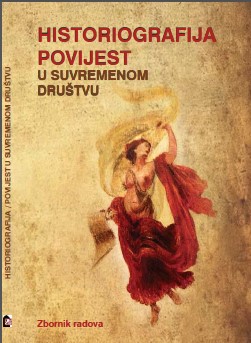Diskurs sjećanja u sjeni prošlosti 20. stoljeća
Discourse of memory in the shadow of the past of the twentieth century
Author(s): Nada Kisić Kolanović
Subject(s): Criminal Law, International Law, Law and Transitional Justice, Military history, Transformation Period (1990 - 2010), Politics of History/Memory, Politics and Identity, Peace and Conflict Studies
Published by: Hrvatski institut za povijest
Keywords: memory; history; identity; transitional culture of remembrance;
Summary/Abstract: Author analyzes discursive praxis in confronting the past and reasons why such approach is considered as a stabilizing concept within historiography. The example of holocaust and its implementation within national and transnational memory of the entire humankind shows how history and memory coexist. Namely, a historiography is inspired by a new model of ethical awareness that imposes revealing of a negative memory in order to avoid repetition and manipulation of the remembrance, especially regarding possible retroactive justification of historical crimes. Generally speaking, such a concept of confronting the past opens question about “negative memories”, and maintains idea that not speaking about historical evil enables its possible return in the future. From the perspective of historical memory one can say that historiography today emphasizes its ethical orientation. Historians today do not have a monopoly on interpreting the past, and this fact enables dialogue between historiography and other scholarly disciplines. Namely, during the last twenty years many sociologists, anthropologists, psychologists, literary scholars and philosophers contributed a lot in the investigation of contradictions and anomalies that accompany transformation of a living communicated remembrance to the commemorative and institutionalized memory. The question of transformation of individual remembrance to collective memory is rather well investigated in the relation to the meaning and significance of social obligation towards a social group, especially regarding question of merging or debarring of certain memories. Author also points out some examples of making the memories in Croatia during the transition period in 1990s’. Moreover, question of rememorizing the World War Two (1941-1945) is discussed in comparison to the rising of social importance of the remembrance of the Homeland War (1991- 1995), especially in the relation to the decisions of the International Criminal Tribunal for the former Yugoslavia. The fall of the Berlin wall in 1989 and collapse of communism in the Central and South-Eastern Europe provoked numerous nationalistic re-interpretations in the small local historiographies. Consequently, some of the Croatian historians during 1990s’ treated their nation as a victim, and confronting the past was rather strongly present in the investigation of victims of communism 1945- 1990, which was necessary at that time because of the need to create a social balance. Nowadays some recent studies show that Croatian historians are more open towards new theoretical approaches within the research field of culture of remembrance. Finally, there is an open question of memorial function of the Homeland War 1991-1995. Namely, many analysts think that international justice has failed in the case of processing crimes during the Yugoslav war. If the International Court of Justice took more clear and undisputable position regarding crime against peace that was committed by Milošević’s Serbia during the aggression to Croatia and Bosnia and Herzegovina, we could do much more effective work regarding negation of mass crimes and recurrence of genocide in Europe.
- Page Range: 79-99
- Page Count: 21
- Publication Year: 2014
- Language: Croatian
- Content File-PDF

